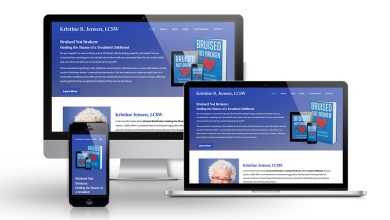How to Use Analytical Ability Tests to Identify Top Talent

Unlock the secrets to identifying top talent with analytical ability tests. Learn how to integrate them into your recruitment process effectively.
In today’s fiercely competitive job market, identifying top talent is crucial for the success of any organization. But how do you separate the exceptional candidates from the rest of the pack? This is where analytical ability tests come into play. These assessments provide invaluable insights into a candidate’s problem-solving skills, critical thinking abilities, and capacity for data analysis.
But what exactly are analytical ability tests? Essentially, they are tools used by employers to evaluate a candidate’s aptitude for tackling complex problems and making sound decisions. From assessing logical reasoning to evaluating numerical and verbal reasoning skills, these tests delve deep into an individual’s cognitive capabilities.
In this blog, we’ll delve into the world of analytical ability tests, exploring their significance in talent assessment and recruitment processes. We’ll discuss the different types of analytical tests, their benefits, and how they can be integrated into technical interview questions to provide a comprehensive evaluation of candidates’ capabilities. So, if you’re ready to unlock the secrets to identifying top talent, let’s dive in!
Understanding Analytical Ability Tests
Analytical ability tests are standardized assessments designed to measure a candidate’s cognitive skills, particularly their capacity for logical reasoning, critical thinking, and problem-solving. These tests are commonly used by employers during the recruitment process to evaluate the suitability of candidates for specific roles within an organization.
One of the primary goals of analytical ability tests is to assess how well candidates can analyze and interpret information, identify patterns and trends, and draw logical conclusions. These skills are essential in a wide range of professions, from finance and engineering to marketing and management.
Analytical ability tests come in various formats, including numerical reasoning tests, verbal reasoning tests, and abstract reasoning tests. Each type of test evaluates different aspects of a candidate’s analytical abilities, providing employers with valuable insights into their potential for success in the role.
Benefits of Utilizing Analytical Ability Tests in Talent Assessment
Incorporating an analytical ability test into talent assessment processes offers numerous benefits for employers and candidates alike. Firstly, these tests provide an objective and standardized way to evaluate candidates’ cognitive abilities, eliminating bias and ensuring fairness in the selection process. By relying on data-driven assessments rather than subjective judgments, employers can make more informed decisions about which candidates are the best fit for the role.
Furthermore, analytical ability tests have been shown to be highly predictive of job performance. Candidates who perform well on these tests are more likely to excel in roles that require problem-solving, critical thinking, and decision-making skills. This predictive validity allows employers to identify top talent with confidence, reducing the risk of hiring mismatches and turnover.
Another advantage of utilizing analytical ability tests is the time and cost efficiency they offer in the recruitment process. By streamlining candidate evaluation and selection, employers can save valuable time and resources while still ensuring thorough and comprehensive assessments. This efficiency is especially valuable in today’s competitive job market, where companies need to move quickly to secure top talent.
Key Components of Analytical Ability Tests
Analytical ability tests typically consist of several key components that assess different aspects of a candidate’s cognitive skills. One essential component is problem-solving skills evaluation, which involves presenting candidates with hypothetical scenarios or challenges and assessing their ability to identify and implement effective solutions. This component helps employers gauge candidates’ creativity, resourcefulness, and adaptability in addressing real-world problems.
Another critical component of analytical ability tests is the assessment of critical thinking skills. This involves evaluating candidates’ ability to analyze information, evaluate arguments, and make reasoned judgments. By testing critical thinking skills, employers can determine candidates’ ability to think logically, evaluate evidence, and make informed decisions, all of which are essential for success in a wide range of roles.
Additionally, analytical ability tests often include sections that assess candidates’ data interpretation and analysis skills. This may involve presenting candidates with data sets, graphs, or charts and asking them to draw conclusions, identify trends, or make predictions based on the information provided. These tasks help employers assess candidates’ ability to work with data effectively and make data-driven decisions.
Incorporating Analytical Ability Tests into Technical Interview Questions
Integrating analytical ability tests into technical interview questions is a powerful way to gain deeper insights into candidates’ capabilities. By combining technical assessments with analytical tasks, employers can evaluate not only candidates’ knowledge and expertise but also their problem-solving skills and critical thinking abilities in real-time scenarios.
For example, during a technical interview for a software engineering position, candidates may be asked to solve coding challenges or debug complex algorithms. By incorporating analytical tasks into these scenarios, such as identifying the most efficient solution to a problem or explaining the reasoning behind their coding decisions, employers can assess candidates’ ability to think critically and approach technical challenges strategically.
Moreover, integrating analytical ability tests into technical interviews ensures a more holistic evaluation of candidates’ skills. While technical expertise is undoubtedly important, the ability to apply that knowledge in practical situations and solve problems effectively is equally crucial for success in many roles.
Best Practices for Administering Analytical Ability Tests
Administering analytical ability tests effectively requires adherence to certain best practices to ensure fairness, accuracy, and reliability in the assessment process. One crucial aspect is designing tests that are valid and reliable, meaning they accurately measure what they intend to assess and produce consistent results over time. This involves carefully crafting test questions, piloting the assessments, and conducting regular validity checks to ensure they accurately predict job performance.
Providing clear instructions and feedback is another essential practice when administering analytical ability tests. Clear instructions help candidates understand what is expected of them during the assessment, reducing anxiety and ensuring a fair evaluation. Additionally, providing timely and constructive feedback allows candidates to understand their strengths and areas for improvement, enhancing their overall experience and encouraging continuous learning and development.
Ensuring fairness and equal opportunity in testing processes is also paramount. Employers should strive to eliminate bias in test design and administration, provide accommodations for candidates with disabilities or special needs, and ensure that all candidates have equal access to preparation materials and support resources.
Analyzing Results and Identifying Top Talent
Once analytical ability tests have been administered, the next crucial step is to analyze the results and identify top talent effectively. This involves interpreting performance metrics gleaned from the assessments, comparing candidates’ results with the requirements of the job role, and identifying individuals who demonstrate the highest potential for success.
Interpreting performance metrics involves more than just looking at raw scores; it requires a nuanced understanding of what each score represents in terms of candidates’ cognitive abilities and problem-solving skills. By delving deeper into the meaning behind the numbers, employers can gain valuable insights into candidates’ strengths and weaknesses, helping them make more informed decisions about who to hire.
Comparing candidates’ results with the requirements of the job role is essential for identifying the best fit for the position. By aligning assessment results with the specific competencies and skills needed to excel in the role, employers can pinpoint candidates who possess the most relevant and desirable qualities, ensuring a better match between the individual and the job.
Finally, identifying top talent involves more than just looking at test scores; it requires a holistic assessment of candidates’ potential for growth and development within the organization. By considering factors such as past experiences, soft skills, and cultural fit, employers can identify candidates who not only have the cognitive abilities to succeed but also the motivation and drive to make a meaningful impact in their roles.
Conclusion
In today’s competitive job market, identifying top talent is essential for organizations striving to thrive and innovate. Analytical ability tests offer a powerful tool for achieving this goal, providing employers with valuable insights into candidates’ cognitive abilities, problem-solving skills, and critical-thinking prowess.
By incorporating analytical ability tests into talent assessment processes, employers can make more informed hiring decisions, ultimately leading to the selection of candidates who are not only technically proficient but also equipped to tackle the complex challenges of the modern workplace.
As we’ve explored throughout this blog, the benefits of utilizing analytical ability tests in talent assessment are manifold. From providing objective evaluations to predicting job performance and enhancing efficiency in recruitment processes, these assessments play a crucial role in identifying individuals who have the potential to make a significant impact within an organization.









